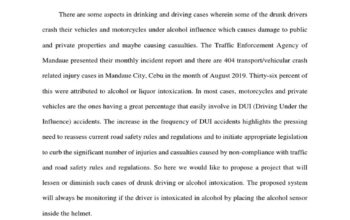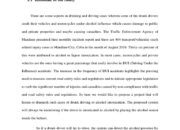In the aftermath of yet another Research Assessment Exercise (RAE), the academic community finds itself at a pivotal juncture, grappling with the implications of the results and the trajectory of research evaluation in the foreseeable future. The RAE has traditionally served as a barometer for the quality and impact of academic research, influencing funding allocations, institutional prestige, and individual career trajectories. However, as the academic ecosystem evolves, it is imperative to critically examine what lies ahead for research evaluation, especially in the context of a rapidly changing global research landscape.
Firstly, it is essential to acknowledge the multifaceted nature of research evaluation. The conventional metrics—such as citation indices, publication counts, and peer review assessments—have been the cornerstone of RAEs. Nonetheless, there is an emergent recognition that these traditional indicators may not sufficiently encapsulate the breadth and depth of research impact. Consequently, there surrounds a burgeoning discourse advocating for a more holistic approach to research evaluation, one that accommodates qualitative dimensions alongside quantitative measures.
One anticipated shift is the rise of innovative evaluation frameworks that prioritize interdisciplinary collaboration. As research problems become increasingly complex, transcending traditional academic boundaries, there is a burgeoning necessity for evaluative paradigms that can accommodate interdisciplinary teams. These frameworks may offer a more nuanced understanding of impact, capturing the synergies produced when diverse disciplines converge to tackle pressing societal challenges. Future RAEs may very well integrate assessment metrics tailored to interdisciplinary research contributions, thus fostering a collaborative ethos within academia.
Moreover, the integration of societal impact into research evaluation will likely accelerate. Researchers are increasingly being called upon to demonstrate how their work benefits society, addressing critical issues such as climate change, social equity, and public health. This shift towards societal relevance necessitates that future evaluation criteria encompass not only academic output but also real-world implications. Consequently, institutions may be compelled to develop robust mechanisms for assessing societal impact, such as longitudinal studies that track the influence of research outcomes on policy and practice over time.
An additional layer to this intricate discourse is the increasing prominence of open science practices. The movement towards transparency, accessibility, and reproducibility in research is reshaping how evaluation is conceptualized and executed. Future RAEs may mandate the use of open access publications, data sharing, and supportive infrastructure for collaboration, thus incentivizing researchers to adopt open science principles. By prioritizing open science, the evaluation process can foster a more equitable research landscape, mitigating the biases inherent in traditional metrics that favor established journals and publications.
Furthermore, the digital revolution has heralded the emergence of data-driven evaluation methodologies. Machine learning algorithms and artificial intelligence tools have the potential to revolutionize how research impact is assessed. The application of big data analytics can yield insights into research trends, collaboration networks, and knowledge dissemination patterns, thereby augmenting existing evaluation frameworks. However, this transition is not without challenges; ethical considerations surrounding data privacy and algorithmic bias must be navigated with prudence to ensure equitable and responsible evaluation practices.
In parallel, the evolving nature of academic careers warrants significant consideration. The conventional academic trajectory, characterized by a linear progression from PhD to professorship, is increasingly being challenged by diverse career paths emerging within and beyond academia. As a result, research evaluation will need to adapt to recognize contributions from multiple domains, including industry partnerships, governmental research, and community engagement initiatives. This necessitates a departure from monolithic evaluation standards towards a more pluralistic approach that honors various forms of scholarly contributions and expertise.
Crucially, engagement with the broader research ecosystem will inform the future of evaluation practices. Collaborative partnerships between universities, government, private sector organizations, and civil society are pivotal. Engaging stakeholders from diverse sectors not only enriches the research process but also enhances the relevance and applicability of research findings. As such, research evaluation frameworks will need to proactively involve these stakeholders to ensure that assessments reflect a comprehensive view of research impact, both within academia and beyond.
On the horizon, the conversation surrounding equity, diversity, and inclusion (EDI) in research evaluation is gaining momentum. There is a growing awareness of the systemic biases that permeate traditional evaluation mechanisms, which can inadvertently disadvantage underrepresented groups within academia. Future research assessment initiatives must grapple with these inequities, prioritizing inclusivity and equitable evaluation standards. Developing specific metrics that account for diverse contributions and experiences may become imperative in nurturing a more inclusive academic climate.
In conclusion, the landscape of research evaluation is poised for transformation in the wake of the latest RAE. A multifaceted approach that incorporates interdisciplinary collaboration, societal impact, open science practices, data-driven methodologies, diverse career pathways, stakeholder engagement, and EDI considerations stands at the forefront of this discourse. As the academic community endeavors to refine and redefine research evaluation processes, it is essential to remain cognizant of these emerging trends. The trajectory of research evaluation will undoubtedly shape not only the future of academia but also the broader societal fabric, influencing how knowledge is generated, disseminated, and harnessed for the collective good.












